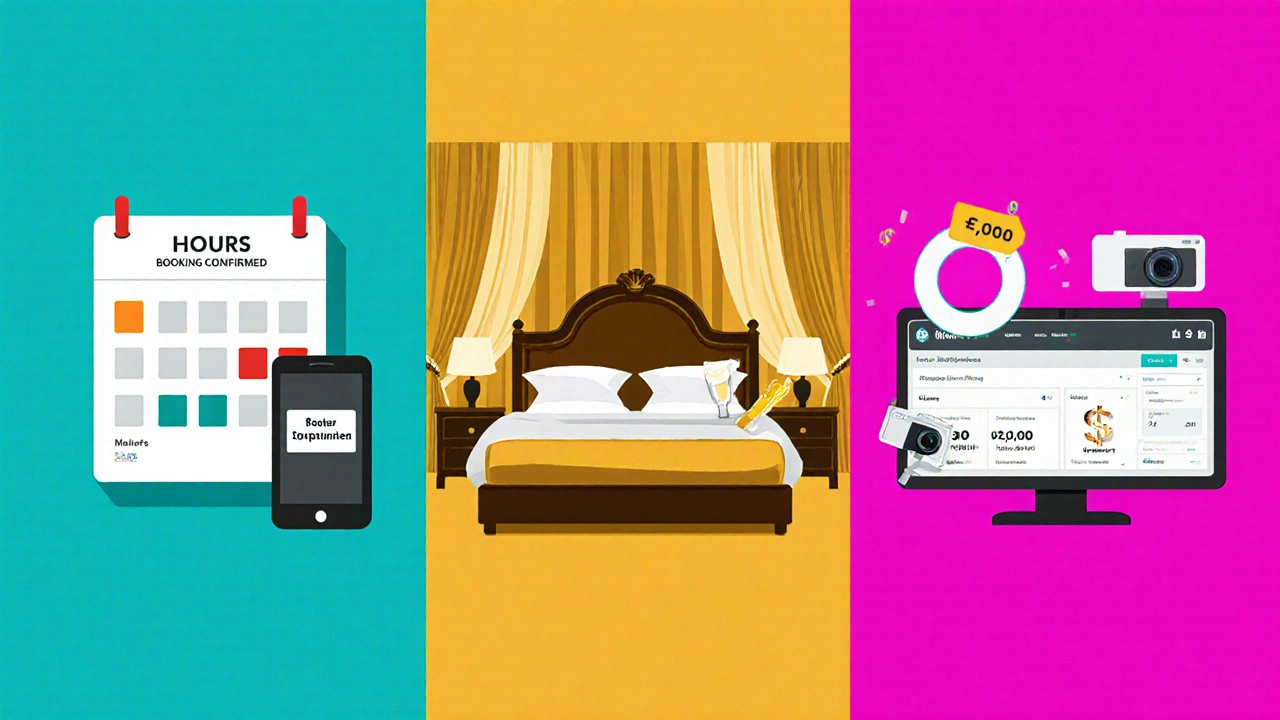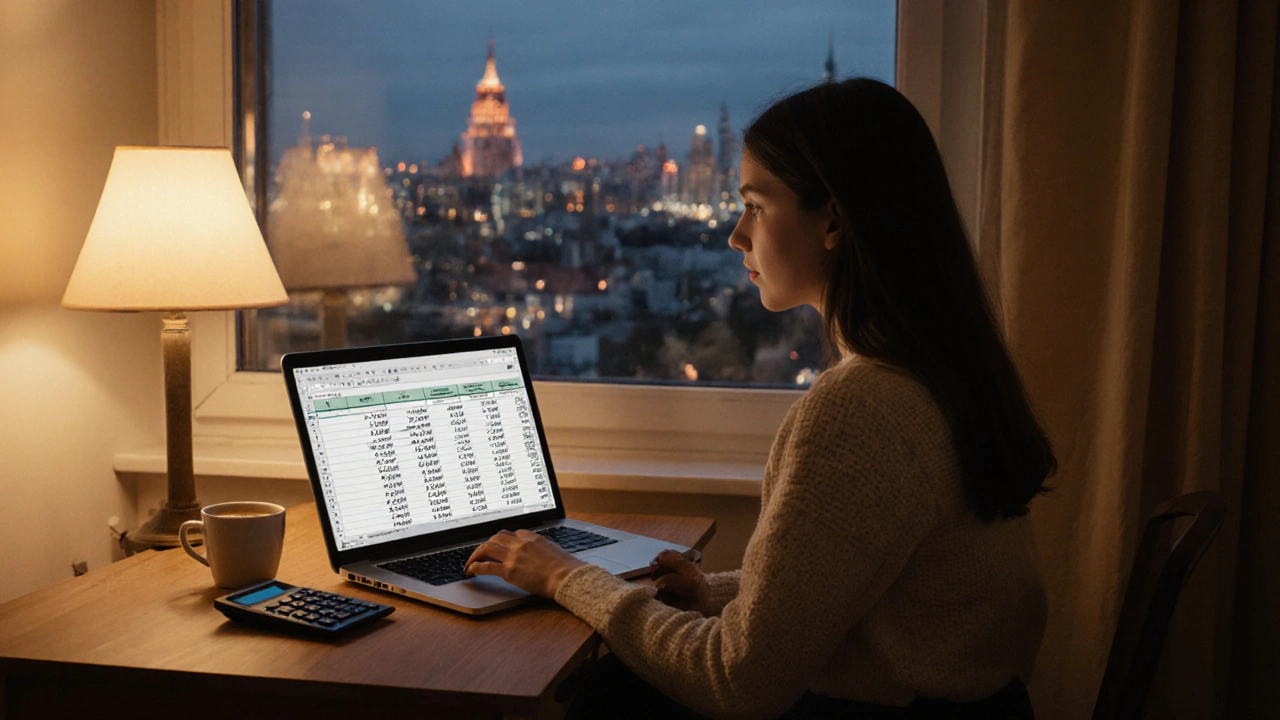When you think about Adult Work Moscow refers to independent adult‑service providers operating in Moscow, Russia, the first thing that pops up isn’t glamour or intrigue - it’s the harsh math of how much you actually keep after taxes, fees, and everyday expenses. In 2024, a survey of 200 providers showed the average gross monthly earnings hovered around ₽150,000, yet net take‑home often fell below ₽80,000 because of tax obligations and cash‑flow gaps. If you’re trying to figure out whether this line of work can fund a stable lifestyle, you need a clear picture of earnings, tax rules, and smart budgeting.
What the Money Looks Like: Typical Income Streams
Most providers in Moscow earn through three main channels:
- Hourly bookings - clients pay per hour for companionship, events, or private sessions.
- Premium packages - multi‑hour or overnight stays bundled with travel or special requests.
- Online content - subscription‑based photo/video feeds sold on platforms that cater to Russian‑speaking audiences.
Hourly rates can range from ₽2,000 to ₽8,000, depending on experience, language skills, and niche services. Premium packages often start at ₽20,000 for a full night and can exceed ₽60,000 for high‑end clients. Online content adds a passive revenue stream; top earners pull in an extra ₽30,000‑₽50,000 per month without leaving their apartment.
Russian Tax Basics for Adult‑Service Providers
The Russian Federal Tax Service (Russian Federal Tax Service) treats earnings from adult work like any other self‑employment income. Two legal structures dominate:
- Self‑employment (S N P) - a simple registration that lets you report income on a personal tax return.
- Limited Liability Company (OOO) - a formal business entity that can offer tax deductions and limited liability.
Both structures require you to pay the Unified Social Tax (UST) - a flat 6 % of your declared income - plus personal income tax at 13 % for Russian residents. Non‑residents face a 30 % rate on worldwide earnings. If you register an OOO, you can opt for a 6 % UST plus a 15 % simplified tax regime (called "USN‑6"), which can be cheaper when your gross exceeds roughly ₽2 million per year.
Comparing Self‑Employment vs. OOO
| Aspect | Self‑Employment (SNP) | Limited Liability Company (OOO) |
|---|---|---|
| Registration cost | ≈ ₽1,500 (online) | ≈ ₽5,000‑₽7,000 (state fee + notarisation) |
| Annual reporting | One‑time declaration, simple form | Quarterly tax reports, bookkeeping required |
| Tax rate on gross | 13 % income tax + 6 % UST = 19 % | 6 % UST + 15 % USN‑6 = 21 % (effective) |
| Ability to deduct expenses | Limited (only standard deductions) | Full business expense deduction |
| Liability protection | Personal assets at risk | Liability limited to company capital |
Bottom line: if you earn under ₽2 million a year, self‑employment is cheaper and simpler. Once you break that threshold, an OOO can save you money by allowing you to write off costs like studio rent, marketing, and travel.

Budgeting Tips to Keep More Money in Your Pocket
Even after taxes, many providers find themselves short on cash because they don’t treat their earnings like a traditional business.
- Separate personal and business accounts. Open a dedicated Russian bank account (e.g., Sberbank) for all client payments. This makes tracking expenses a breeze.
- Set aside tax reserves. Aim to move 20‑25 % of every payment into a “tax jar” the moment it lands. When tax time rolls around, you won’t scramble.
- Track recurring costs. Rent for a safe meeting space, transportation, and content‑creation gear add up. Use a simple spreadsheet or free apps like Google Sheets to log them weekly.
- Plan for off‑season dips. Summer and holiday periods can be slow. Build a three‑month emergency fund equal to at least ₽100,000 to smooth the ride.
- Invest in skill upgrades. Learning a second language (English or Mandarin) can push hourly rates 15‑20 % higher.
Common Financial Pitfalls and How to Avoid Them
1. Cash‑only clients. Some customers pay in cash to avoid traceability. While tempting, cash makes tax reporting a nightmare and increases the risk of loss. Always request a digital transfer when possible.
2. Mixing personal expenses. Paying personal bills from the business account blurs the line that tax authorities need. Keep receipts and categorize every expense correctly.
3. Ignoring registration deadlines. The Russian tax calendar has strict filing dates (April 30, July 30, October 30). Missing a deadline results in fines up to ₽40,000 per missed report.
4. Over‑reliance on a single platform. If a major adult‑service site changes its policy, you could lose half your income overnight. Diversify by building a personal website or using multiple marketplaces.

Quick Checklist for Financial Health
- ✅ Register your preferred legal structure (SNP or OOO) before the first client payment.
- ✅ Open a dedicated business bank account and keep personal funds separate.
- ✅ Allocate 20‑25 % of gross earnings for taxes each month.
- ✅ Track all expenses, keep digital receipts, and file quarterly reports on time.
- ✅ Maintain a three‑month emergency fund.
- ✅ Review pricing quarterly and adjust for inflation or new services.
Future‑Proofing Your Earnings
Regulations around adult work can shift, especially with new digital monitoring tools. Staying ahead means:
- Monitoring legislative updates from the Russian Federal Tax Service and local Moscow authorities.
- Investing in a secure, encrypted payment gateway (e.g., Yookassa with 3‑D Secure) to protect client data and reduce chargebacks.
- Developing a personal brand outside platform constraints - a private Instagram or Telegram channel can provide a direct line to high‑value clients.
These steps not only safeguard your current income but also make it easier to pivot if the market tightens.
Frequently Asked Questions
Do I have to pay Russian income tax if I’m a foreign citizen working in Moscow?
Yes. If you spend more than 183 days in Russia within a calendar year, you become a tax resident and are subject to the 13 % personal income tax on all earnings earned in Russia. Short‑term visitors are taxed at 30 % on worldwide income.
Which legal structure gives me the best tax break for a high‑earning provider?
If your gross exceeds about ₽2 million per year, forming an OOO and using the 6 % UST + 15 % USN‑6 regime lets you deduct business expenses (studio rent, equipment, advertising). This can reduce the effective tax rate to around 12‑14 % after deductions, compared with 19 % under self‑employment.
How often do I need to file tax reports?
Self‑employment requires one annual declaration by April 30. An OOO on the USN‑6 scheme files quarterly reports (by January 31, April 30, July 31, October 31) and an annual summary.
Can I deduct cost of a private studio as a business expense?
Yes, if you operate through an OOO and the studio is used solely for client meetings or content creation. Keep a lease contract and invoices; these are required proof for the tax office.
What’s the safest way to receive payments from international clients?
Use a reputable Russian payment aggregator like Yookassa or Qiwi that supports USD/EUR transfers and offers 3‑D Secure authentication. Avoid direct wire transfers to personal accounts to reduce scrutiny.





